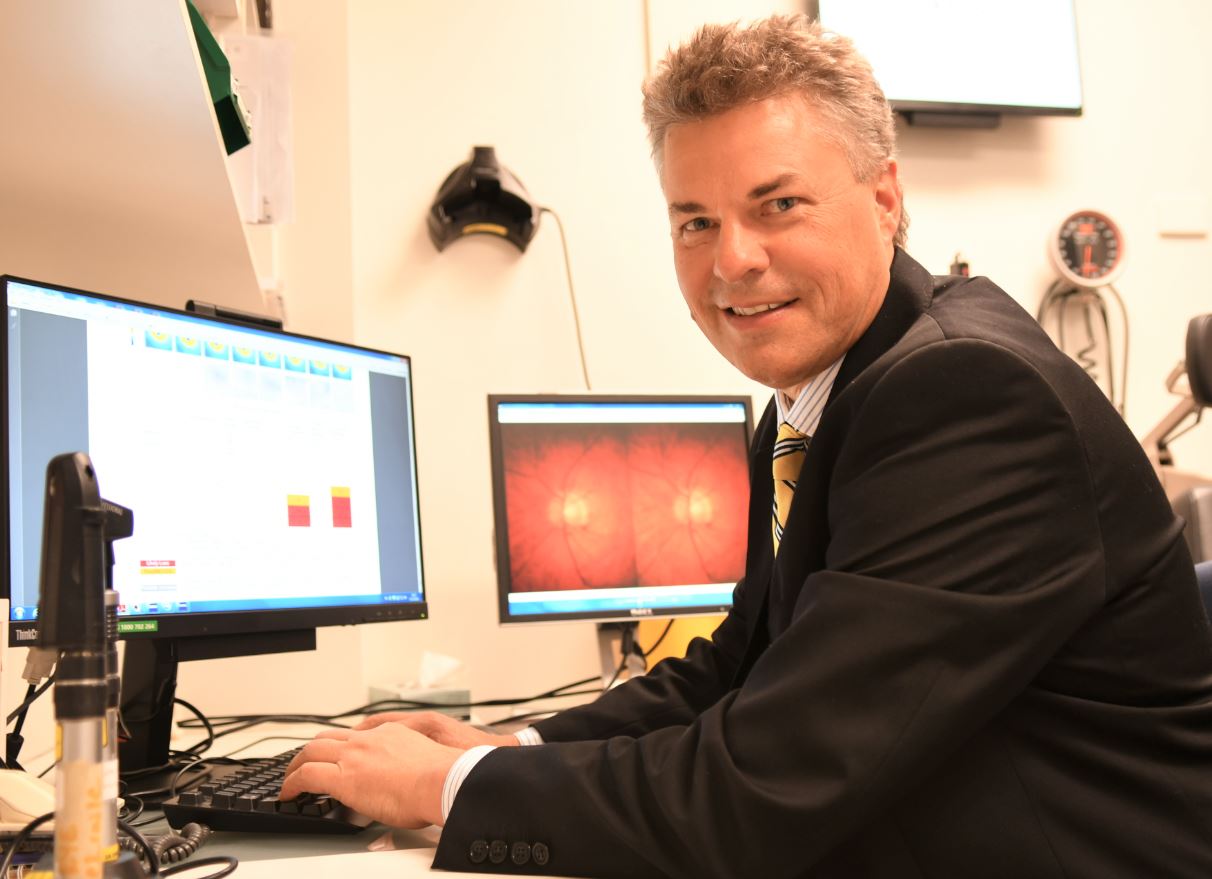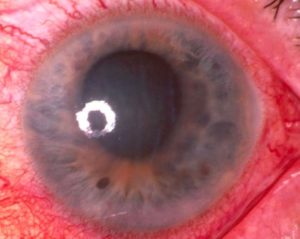
A $304,000 State Government seed grant will be used to commercialise a pioneering solution for assessing glaucoma risk in clinical settings.
South Australian company Seonix Bio is advancing the new polygenic risk score (PRS) test developed by a world-leading research team comprising experts from Flinders University, the QIMR Berghofer Medical Research Institute, the SA Local Health Network within SA Health, and University of Tasmania.
Often known as `the silent thief of sight’, glaucoma is the leading cause of irreversible blindness worldwide. It affects an estimated 80 million people globally, including 300,000 Australians over the age of 40.
The PRS is the first test able to estimate glaucoma risk sufficiently accurately for clinical use, says Flinders University ophthalmologist Professor Jamie Craig, NHMRC Senior Practitioner-Fellow and co-author of a series of previous scientific articles outlining the research results, including in prestigious international journal Nature Genetics.
“Our world-leading research represents a step change in the clinical assessment of glaucoma risk. A patient with a high risk (top decile) PRS is 15x more likely to develop glaucoma than a patient at low risk (bottom decile),” says Matthew Flinders Distinguished Professor Craig, who continues to work on the project with Flinders University colleague Associate Professor Owen Siggs and others.
“Moreover, a glaucoma patient with a high risk PRS is significantly more likely to develop severe vision loss. Optometrists and ophthalmologists have been lacking tools to assess glaucoma risk, and our PRS has a significant role to play.”
Read more in Brave Minds – Early warning system: How genetics and AI can keep an eye on glaucoma
The Government of SA Seed-Start grant will enable Seonix Bio to attain NATA accreditation and deploy the PRS in clinics.
 Glaucoma is an insidious disease that is asymptomatic in the early stages, with damage to the eye’s optic nerve progressing gradually and unknown to the patient until irreversible vision loss occurs. Fortunately, glaucoma is a treatable condition if discovered early. Eye drops, laser and surgery are all effective interventions that can stabilise the condition, slowing or preventing disease progression.
Glaucoma is an insidious disease that is asymptomatic in the early stages, with damage to the eye’s optic nerve progressing gradually and unknown to the patient until irreversible vision loss occurs. Fortunately, glaucoma is a treatable condition if discovered early. Eye drops, laser and surgery are all effective interventions that can stabilise the condition, slowing or preventing disease progression.
However, detecting early-stage glaucoma is challenging using current technology, as is predicting which glaucoma patients will progress to severe vision loss. Some patients whose sight could have been saved are treated too late, while other patients who will never develop severe glaucoma are unnecessarily investigated, monitored and treated.
The Seonix Bio PRS test will enable health professionals to identify individuals at greatest risk of glaucoma, such that they can be prioritised in ophthalmology waiting lists and receive informed clinical care sooner.
Using a blood or saliva sample taken from a patient, the PRS test can be used to assess thousands of different genetic locations, known as single nucleotide polymorphisms, to quantify a patient’s genetic risk of glaucoma.
Seonix Bio CEO Nick Haan says: “This Seed-Start grant will crucially allow us to start offering the PRS in the clinic so that clinicians and their patients can better understand glaucoma risk.
“Our PRS has the potential to improve management and treatment of glaucoma patients and those at risk of glaucoma, while reducing health system costs.”
Minister for Innovation and Skills David Pisoni says the Marshall Government is pleased to support the clinical roll out of this world-leading research through its Seed-Start program.
“The Marshall Government is committed to supporting the growth of local early-stage ventures, particularly those like Seonix Bio with a strong foundation in research and with the potential to solve pressing health challenges,” Mr Pisoni says.
“Seonix Bio’s technology has the potential to improve patient care while increasing the number of high-value technology jobs for South Australians.”
The Seed-Start program operates through the Government of South Australia’s Research and Innovation Fund (RIF) to provide financial support for early-stage, high-growth potential businesses.

